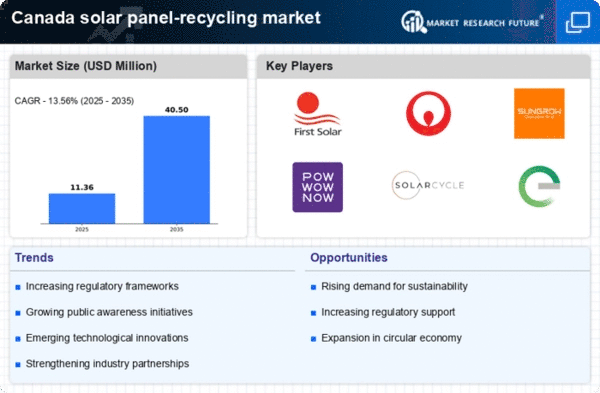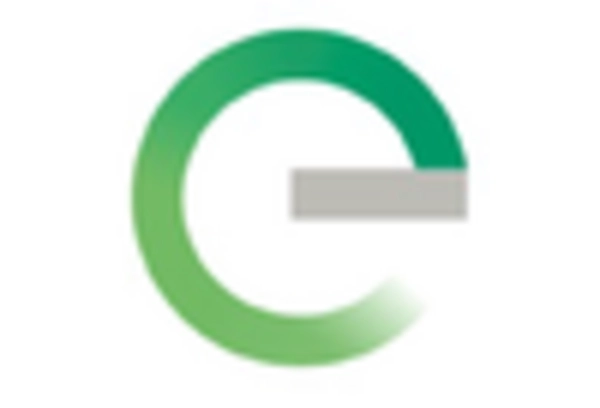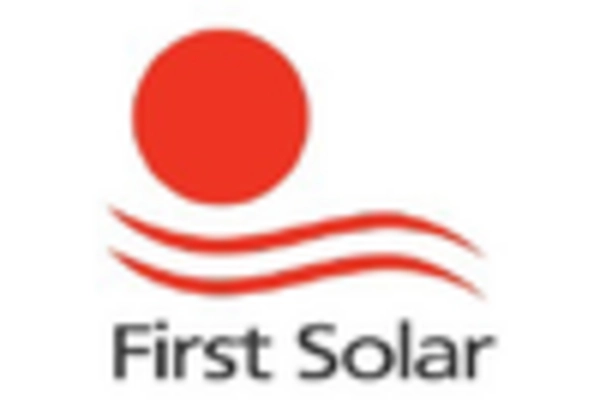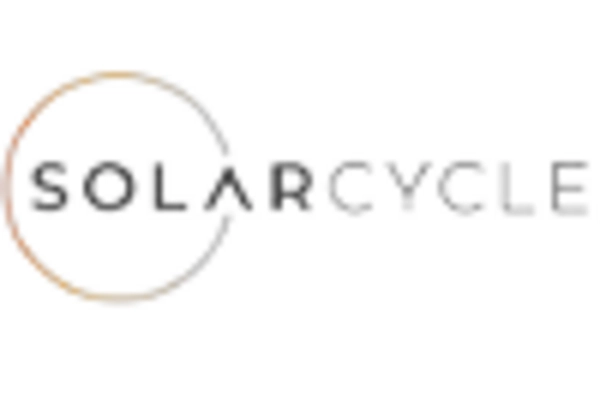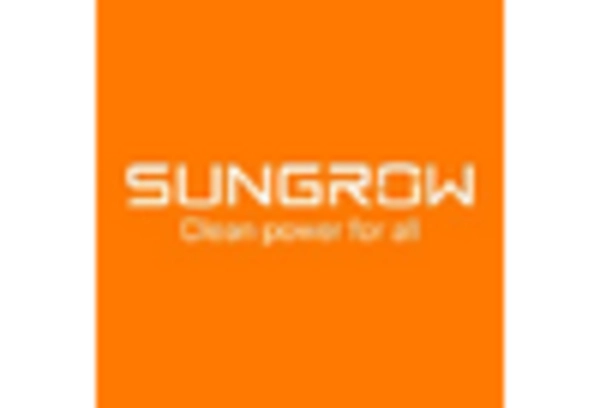Rising Solar Energy Adoption
The rapid adoption of solar energy in Canada is a significant driver for the solar panel-recycling market. As more households and businesses install solar panels, the volume of end-of-life panels is expected to rise dramatically. Statistics indicate that Canada has seen a 50% increase in solar installations over the past five years, leading to a corresponding increase in the need for recycling solutions. This trend suggests that the solar panel-recycling market could expand significantly, as stakeholders seek to manage the lifecycle of solar products responsibly. The growing number of solar installations not only contributes to energy sustainability but also creates a pressing need for effective recycling strategies to handle the eventual disposal of these panels.
Economic Incentives for Recycling
Economic incentives play a crucial role in shaping the solar panel-recycling market. Various provincial governments are introducing financial programs to encourage recycling initiatives. These incentives may include grants, tax credits, or subsidies for companies that invest in recycling technologies or facilities. For instance, a recent initiative in Ontario offers up to $500,000 in funding for businesses that develop innovative recycling processes. Such financial support is likely to stimulate investment in the solar panel-recycling market, making it more attractive for companies to participate. This economic landscape not only promotes recycling but also contributes to job creation in the green technology sector, further enhancing the market's growth potential.
Increasing Environmental Regulations
The solar panel-recycling market in Canada is experiencing a surge in demand due to increasing environmental regulations. The Canadian government has implemented stringent policies aimed at reducing waste and promoting sustainable practices. These regulations often mandate the recycling of electronic waste, including solar panels, which contain hazardous materials. As a result, manufacturers and installers are compelled to adopt recycling solutions to comply with these laws. The market is projected to grow as more provinces introduce specific recycling targets, potentially leading to a 30% increase in recycling rates by 2030. This regulatory environment not only encourages responsible disposal but also fosters innovation in recycling technologies, thereby enhancing the overall efficiency of the solar panel-recycling market.
Technological Innovations in Recycling
Technological innovations are transforming the solar panel-recycling market in Canada. Advances in recycling technologies, such as improved separation techniques and automated processes, are enhancing the efficiency and effectiveness of recycling operations. These innovations allow for higher recovery rates of valuable materials, such as silicon and silver, which can be reused in new solar panels. As technology continues to evolve, the cost of recycling is expected to decrease, making it a more viable option for manufacturers and consumers alike. The integration of artificial intelligence and machine learning in recycling processes may further optimize operations, potentially increasing the market's capacity to handle larger volumes of end-of-life panels. This technological progress is likely to be a key driver in the growth of the solar panel-recycling market.
Public Awareness and Education Campaigns
Public awareness and education campaigns are increasingly influencing the solar panel-recycling market in Canada. As consumers become more informed about the environmental impacts of solar panel waste, there is a growing demand for responsible recycling options. Initiatives led by non-profit organizations and government agencies aim to educate the public on the importance of recycling solar panels and the potential hazards of improper disposal. These campaigns are likely to foster a culture of sustainability, encouraging consumers to seek out recycling services when their solar panels reach the end of their lifecycle. The heightened awareness may lead to increased participation in recycling programs, thereby driving growth in the solar panel-recycling market and contributing to a more sustainable future.


